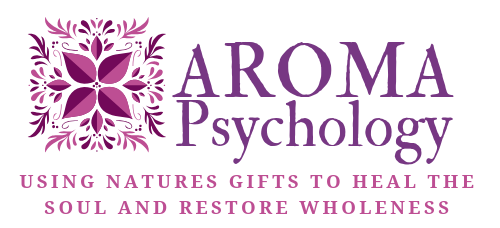
Understanding the Connection Between Scents, Memories and Emotions
Human senses are extraordinary portals to our experiences. The sense of smell, in particular, has a unique ability to transport us back in time. One whiff of a certain scent can trigger vivid memories and a rush of emotions. Have you ever wondered why this happens and what is the connection between scents, memories, and emotions? Let’s delve into the science behind it and explore the fascinating world of aromatherapy that leverages this connection for emotional healing.
The Olfactory System: A Direct Link to Our Brain
Our sense of smell is intricately tied to the limbic system of the brain, which is responsible for emotion, memory, and certain aspects of behavior. Unlike our other senses, which need to be processed before they reach this part of the brain, scents have a direct path. This is why smells are so effective at triggering emotions and memories.
In this fascinating dance of biochemistry and perception, every inhalation carries molecules of aroma to the olfactory receptors nestled within the nasal cavity. Like keys slipping into locks, scent molecules bind to these receptors, triggering a cascade of electrical signals. These signals travel up the olfactory nerve like shooting stars, traveling the stellar pathway to the brain’s olfactory bulb, the brain’s smell center.
Unlike our other senses, which need to be processed before they reach this part of the brain, scents have a direct path to the limbic system – our brain’s primal core. This area is directly connected to the amygdala and hippocampus, the regions of the brain that handle emotions and memory respectively.
This direct line of communication, swift and unfiltered, is why scents can evoke memories and emotions more quickly and vividly than our other senses. A scent can suddenly light up a forgotten corner of our memory, carrying us back to times and places left untouched by years or even decades.
Today, scientists are delving deeper into this mystifying connection. Neuroimaging studies are unmasking the complex pathways and interactions between scent molecules and the brain. Functional MRI scans reveal the brain’s blossoming activity when introduced to different scents, and PET scans expose the bright constellations of neural activity sparked by various aromas.
Scientists are also exploring how aromas influence our nervous system. Studies suggest that certain scents can calm the fight or flight response of our sympathetic nervous system and activate the rest and digest functions of our parasympathetic nervous system. Like a soothing lullaby that calms a troubled mind or a rallying anthem that spurs us into action, aromas can sway the rhythm of our internal symphony, influencing not just our mood and memories, but our very state of being.
Our sense of smell stirs a cascade of emotional responses and memories, stirred by the simple act of breathing. In the understanding of this beautiful connection, we find not just the key to our past and the pulse of our present emotions, but also a profound tool for wellbeing, waiting to be harnessed in every breath.
Scents and Memories: The Proustian Phenomenon
The deep-seated association between scents and memories is often referred to as the “Proust Phenomenon,” inspired by French writer Marcel Proust. In his novel “In Search of Lost Time,” Proust describes a character vividly recalling long-forgotten memories from his childhood after smelling a madeleine cake dipped in tea.
This experience is not limited to literature. Many of us have had the experience of being transported back to a specific moment, place, or person in response to a particular scent. It could be the smell of your grandmother’s perfume that takes you back to childhood holidays or the scent of the sea that reminds you of joyful summer vacations.
Emotional Aromatherapy: Harnessing the Power of Scent
The powerful connection between scents, memories, and emotions is the foundation of emotional aromatherapy. Aromatherapy uses essential oils extracted from plants, carrying their unique scents. These oils are known to elicit various psychological and physiological responses.
By choosing essential oils with specific properties, aromatherapy aims to promote relaxation, enhance mood, reduce stress, and encourage overall well-being. For example, lavender is often used for its calming properties, while citrus scents like orange or lemon are used for their uplifting and invigorating effects.
Harnessing the Power of Scents for Emotional Well-being
Aromatherapy with essential oils is a potent method to engage the connection between scents, memories, and emotions for our emotional health and wellbeing. By understanding the properties of various essential oils, we can use them to support specific emotional states and needs. Here is a list of some common emotions and the essential oils known to provide support:
- Anxiety and Stress: Lavender, Chamomile, and Frankincense oils have calming properties that can soothe anxious feelings and reduce stress.
- Depression and Low Mood: Citrus oils like Orange, Bergamot, and Lemon are uplifting and can help elevate mood and alleviate feelings of depression.
- Fatigue: Peppermint and Rosemary oils can stimulate the mind and body, aiding in combatting feelings of fatigue and promoting alertness.
- Anger and Frustration: Ylang Ylang and Jasmine oils have calming properties that can help soothe feelings of anger and frustration.
- Insecurity and Fear: Cedarwood and Vetiver oils can promote feelings of grounding and stability, helping to alleviate feelings of insecurity and fear.
- Sadness and Grief: Rose and Neroli oils can provide emotional support and comfort during times of sadness and grief.
- Insomnia and Sleep issues: Lavender and Sandalwood oils have sedative properties that can promote better sleep and relaxation.
Remember, each person can have a unique response to different scents, so it’s important to experiment and find the oils and methods of use that work best for you. From diffusing these oils in your space to applying them topically or using them in a relaxing bath, essential oils offer a wonderful way to connect with your emotional states and support your emotional wellbeing.
The Role of Scent Marketing in Business
The influential power of scents extends beyond personal wellbeing into the world of business, particularly in marketing and sales, a strategy known as scent marketing. Businesses strategically use specific aromas to trigger positive emotions and associations, thus creating a memorable shopping experience that can influence purchasing decisions. Whether it’s the scent of fresh-baked cookies in a bakery or the aroma of leather in a car showroom, these olfactory cues can enhance the customer experience and even increase the perceived value of products. This strategy leverages the deep connection between scents, memories, and emotions to form a unique brand identity and shape positive customer experiences.
The Future of Scents in Emotional Health
Scents have an extraordinary power to evoke memories and emotions, reminding us of our past and influencing our mood. This connection between scents, memories, and emotions provides a potent tool that we can harness for our emotional well-being. With the increasing understanding of the power of scent on our emotions, researchers are exploring more ways to utilize this in improving emotional health. In the future, we may see more personalized approaches to emotional aromatherapy, using the science of scent to support mental health, manage stress, and enhance our overall well-being.

Add A Comment